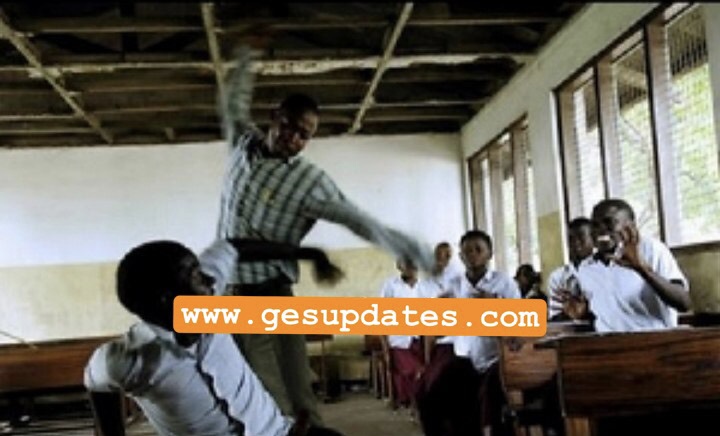
In recent news, a distressing incident has brought attention to the alarming consequences of teacher-student conflicts within educational environments. The case involves a female teacher accused of causing the death of her 13-year-old pupil in Swedru. Additionally, Coleman publication reports a similar incident where a class teacher from Dixcove Methodist Basic School in the Ahanta West District of the Western Region of Ghana allegedly slapped a student, triggering a chain of events that ultimately led to his untimely demise.
Check This: Fully Funded Scholarships Available in the UK, Canada, Germany, and USA with No Tuition Fees - Apply Now For Free
Disruptive Behavior and Provocation:
According to available information, the pupil involved in the Dixcove incident had been displaying disruptive behavior in the classroom, which had apparently irritated the teacher. Despite attempts to restore order, the student persisted in causing disturbances, leading to an unfortunate escalation. In response to the ongoing disruption, the teacher resorted to slapping the student.
Unforeseen Health Complications:
Following the incident, the student reportedly threatened retaliation against the teacher. However, what transpired next was unforeseen and tragic. The teacher, who had previously been in good health, suddenly experienced feelings of feverishness later that evening. Concerned about his deteriorating condition, he was promptly rushed to the hospital. Unfortunately, despite immediate medical attention, he succumbed to his ailment shortly after arriving at the hospital on Monday, May 29th, 2023.
Examining the Complexities:
While these incidents are deeply saddening, they bring to light the complex dynamics of teacher-student conflicts within educational settings. It is crucial to delve into the underlying factors that contribute to such unfortunate events and explore potential preventive measures.
Check This: Fully Funded Scholarships Available in the UK, Canada, Germany, and USA with No Tuition Fees - Apply Now For Free
The Importance of Restoring Order:
Maintaining discipline and order in the classroom is a fundamental aspect of effective teaching. However, instances where discipline escalates to physical altercations underscore the need for alternative conflict resolution strategies. Teachers play a pivotal role in creating a conducive learning environment, where respect, empathy and understanding are prioritized.
Effective Communication and Conflict Resolution:
Enhancing communication and conflict resolution skills among educators can help mitigate the risk of confrontations escalating to harmful levels. Teachers should be equipped with appropriate training to handle disruptive behavior and conflicts in a non-violent manner. Encouraging open dialogue, active listening, and empathy can foster healthier teacher-student relationships.
Promoting Emotional Well-being:
Emotional well-being of both teachers and students is a critical aspect of a successful educational ecosystem. Investing in comprehensive support systems that address the mental health needs of educators and learners can contribute to reducing stress levels and preventing instances of undue aggression.





